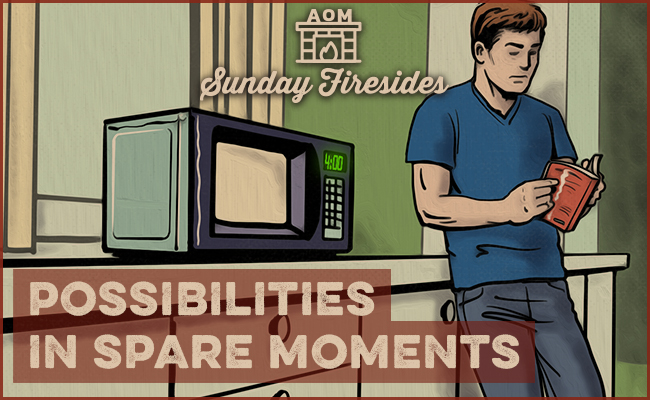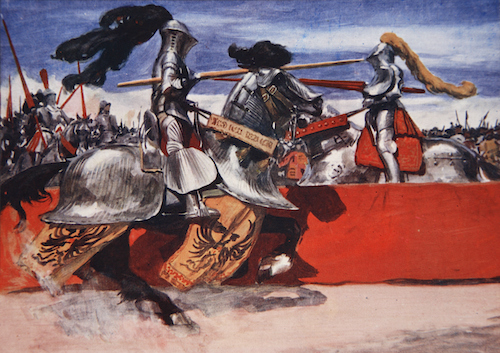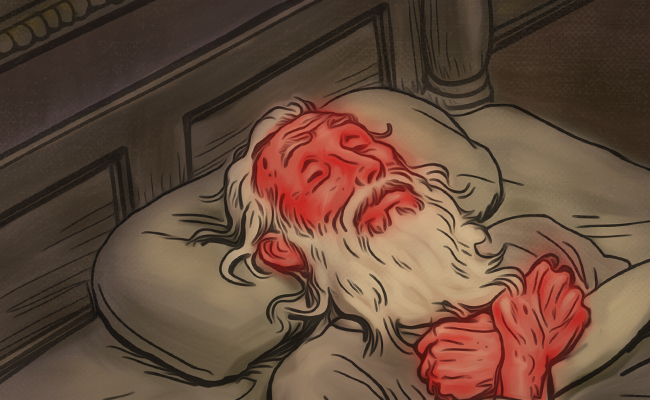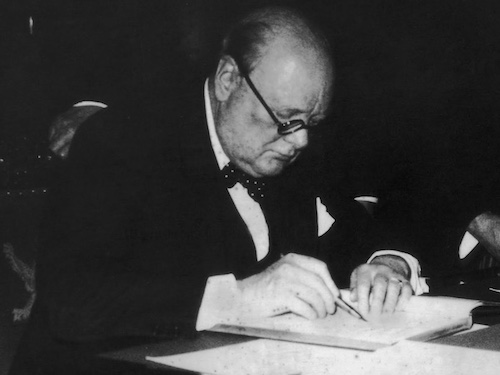
When it comes to moving forward, becoming better, achieving our goals, the biggest obstacle very often seems to be time. In that there’s never enough of it. We keep waiting for long, uninterrupted stretches in which to read, exercise, journal, reply to a text. And yet, no matter how much we organize our schedules to make room for these sustained sessions, interruptions incessantly intervene, and we continue to struggle to accomplish all that we wish.
Meanwhile, we let rich, valuable snatches of time embedded in each and every day go entirely unmined.
Five minutes waiting for your Hungry-Man dinner to heat up.
Ten minutes waiting for a tardy colleague to join a meeting.
Twenty minutes driving to and from work.
Taken apart, these little intercises seem entirely inconsequential, and we treat them as such, turning on music, looking down at our phones, twiddling our thumbs.
Yet such pockets of time are no less fertile for their fragmentation; there are great, Orison Swett Marden once observed, “possibilities in spare moments.”
Read a few pages of a book while resting between weightlifting sets; crank out a few push-ups as your morning oatmeal cooks; memorize a quote while standing in line; listen to a lecture course while commuting; send a “just checking on you” text while waiting to see the doctor; or simply use an unexpected interlude for a miniature bout of meditation.
Just twenty seemingly throwaway minutes a day adds up to nearly 10,000 hours over a lifetime.
Do you have 10,000 hours of life to waste?
So often we speak of “killing” time, as if time were a threatening enemy to be readily dispatched as soon as it rears its head. Time is instead our greatest resource, the very slimmest threads of which can, over the days, years, and decades, be spun into true gold.







